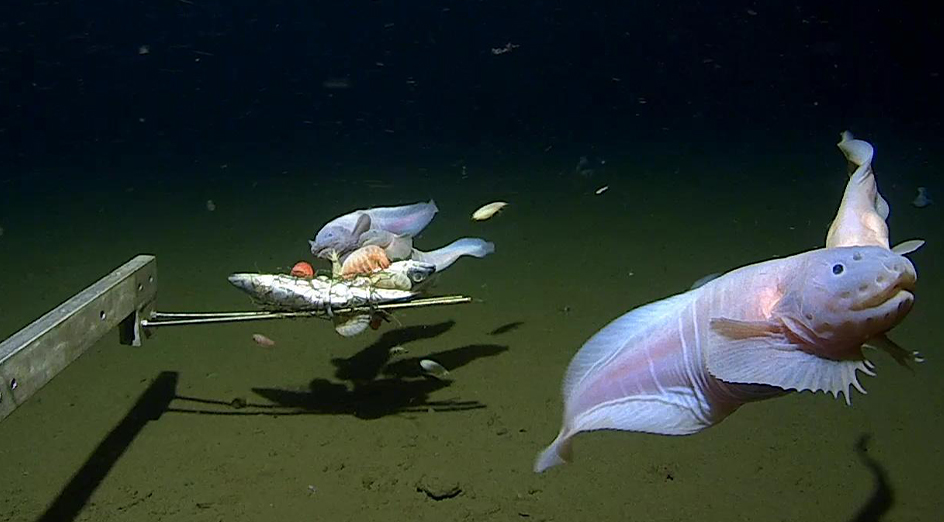Scientists break record for fish filmed in deepest waters to date

A free daily email with the biggest news stories of the day – and the best features from TheWeek.com
You are now subscribed
Your newsletter sign-up was successful
Scientists have broken the record for the deepest fish filmed after capturing the so-called "snailfish" on camera at over 27,000 feet underwater, CNN reports.

"What is significant is that it shows how far a particular type of fish will descend in the ocean," said Alan Jamieson, the marine biologist who led the expedition. The footage was captured in the north Pacific Ocean in the Izu-Ogasawara Trench, just south of Japan.
The snailfish was reported to be a juvenile, meaning it can live in much deeper areas compared to its adult counterparts, and was said to be nearing the limit of depth for a fish to feasibly survive in the ocean, according to BBC. "There is so much more to them than simply the depth, but the maximum depth they can survive is truly astonishing," Jamieson remarked. He added: "If this record is broken, it would only be by minute increments, potentially by just a few meters."
The Week
Escape your echo chamber. Get the facts behind the news, plus analysis from multiple perspectives.

Sign up for The Week's Free Newsletters
From our morning news briefing to a weekly Good News Newsletter, get the best of The Week delivered directly to your inbox.
From our morning news briefing to a weekly Good News Newsletter, get the best of The Week delivered directly to your inbox.
Most fish under the snailfish umbrella actually tend to reside in shallow water, but their gelatinous bodies have helped some successfully adapt to the high pressures in trenches, per BBC. At the depth the snailfish was filmed, the water pressure is 800 times higher than the surface of the ocean. Snailfish are also more likely to traverse the Izu-Ogasawara trench because its waters are slightly warmer.
Scientists would like to explore deeper, but "technology has been expensive and scientists don't have a lot of money," Jamieson said. "I get frustrated when people tell me we know nothing about the deep sea. We do. Things are changing really fast," he told BBC.
A free daily email with the biggest news stories of the day – and the best features from TheWeek.com
Devika Rao has worked as a staff writer at The Week since 2022, covering science, the environment, climate and business. She previously worked as a policy associate for a nonprofit organization advocating for environmental action from a business perspective.
